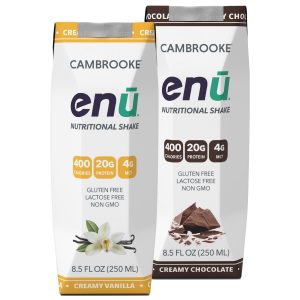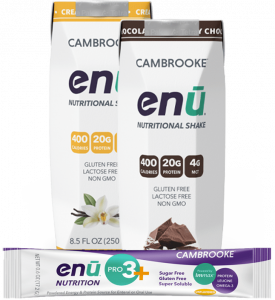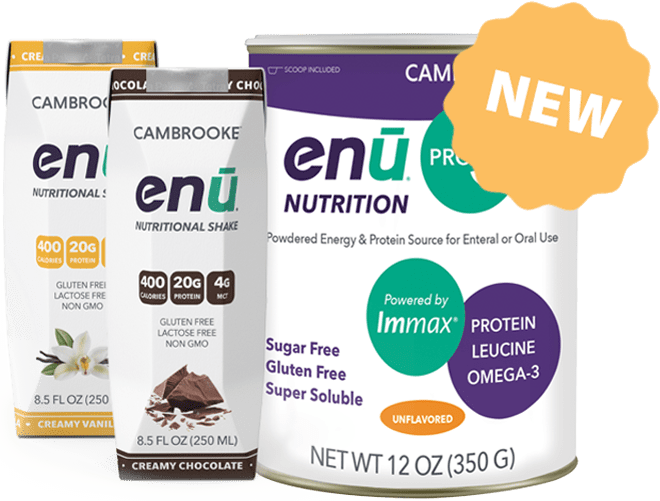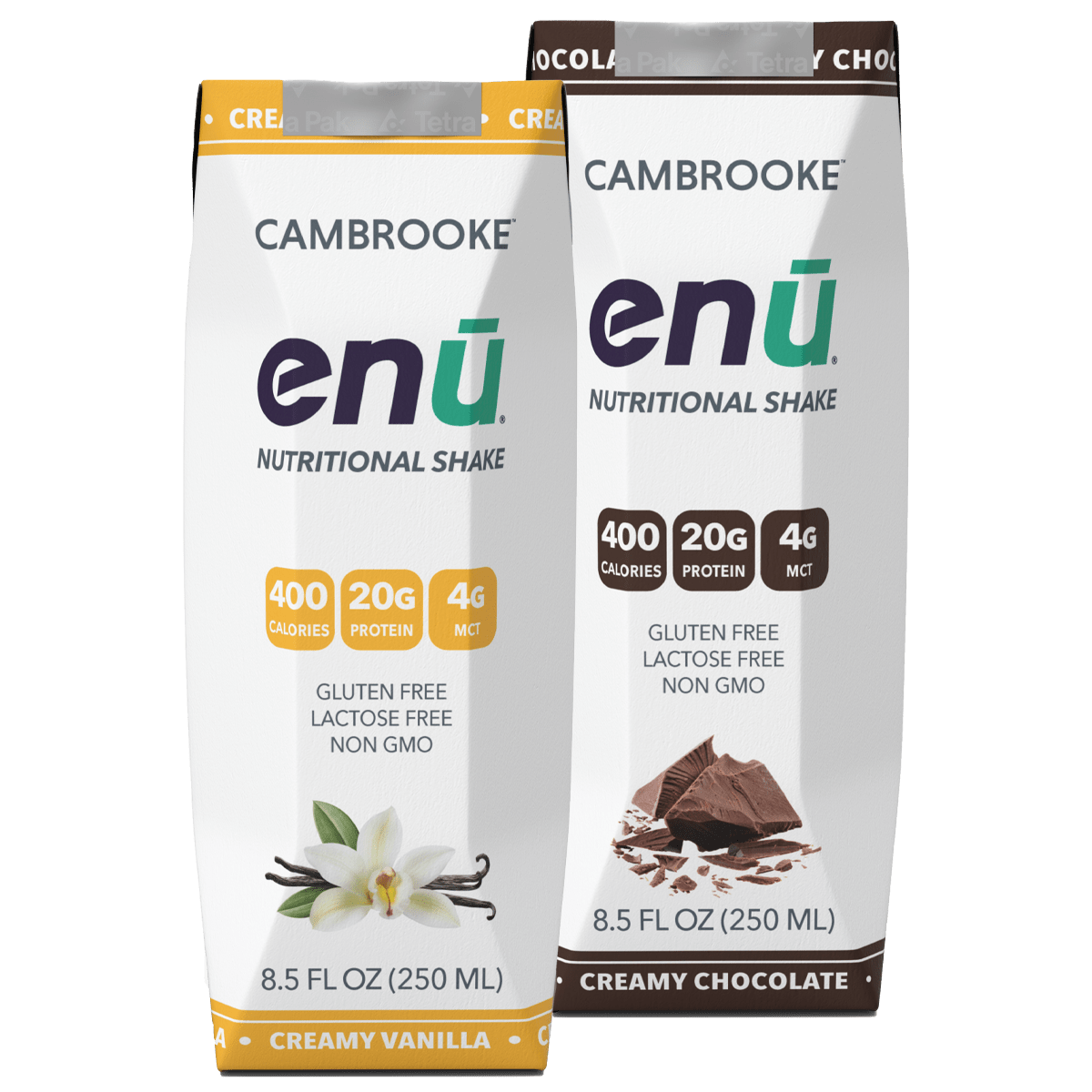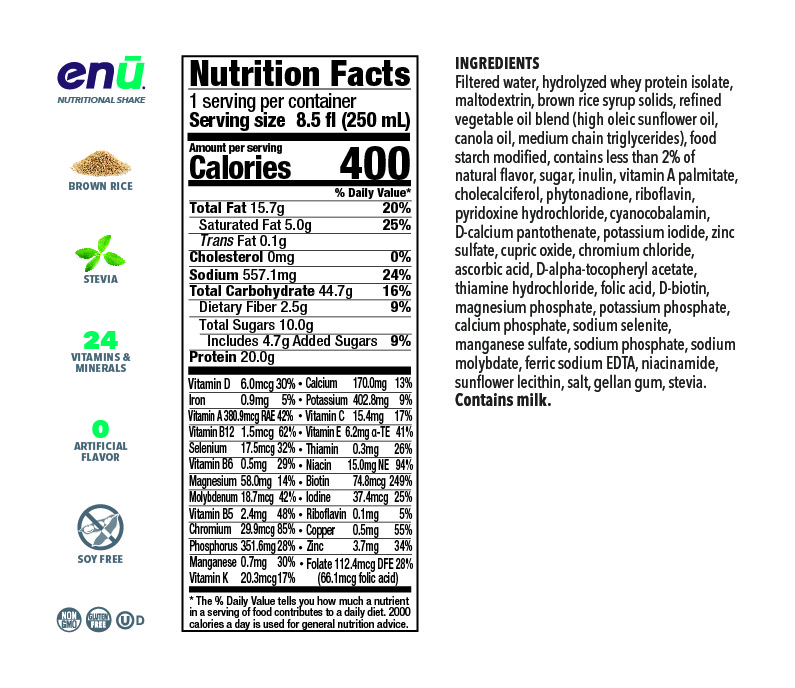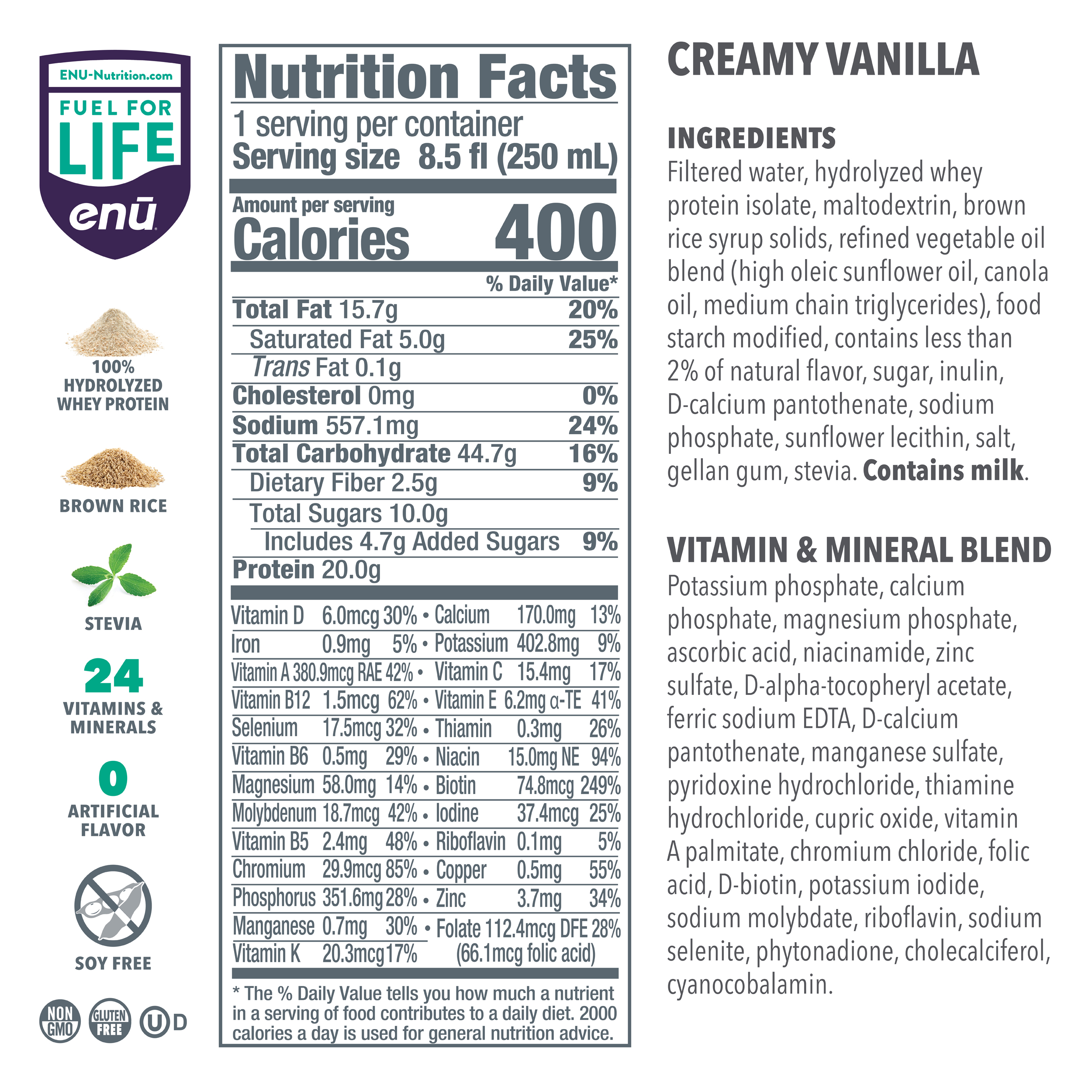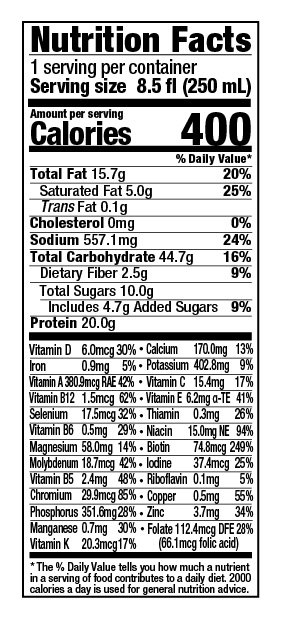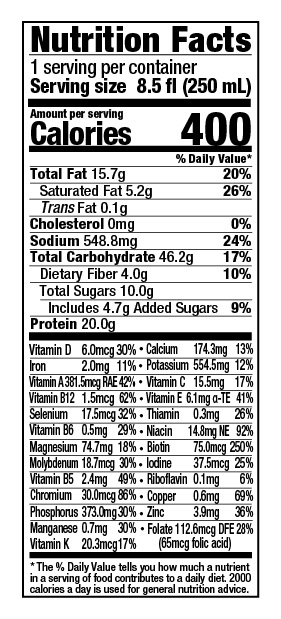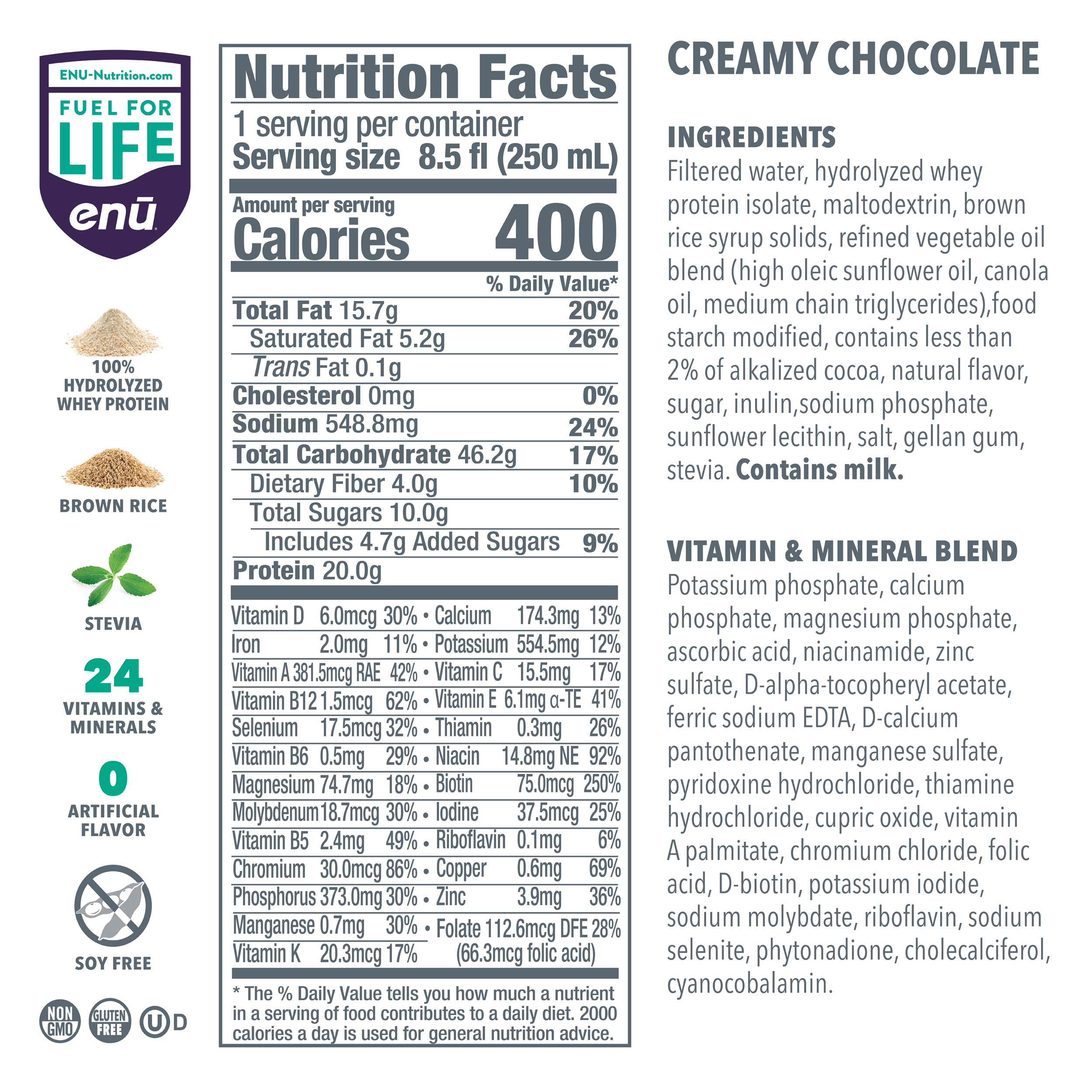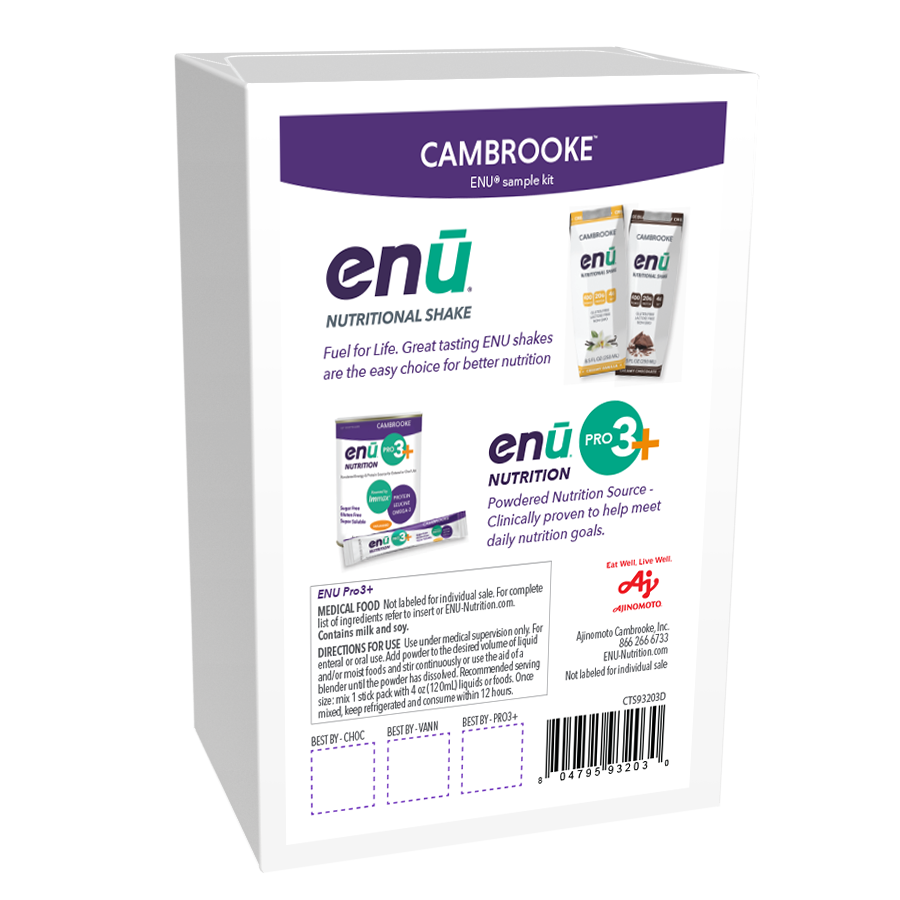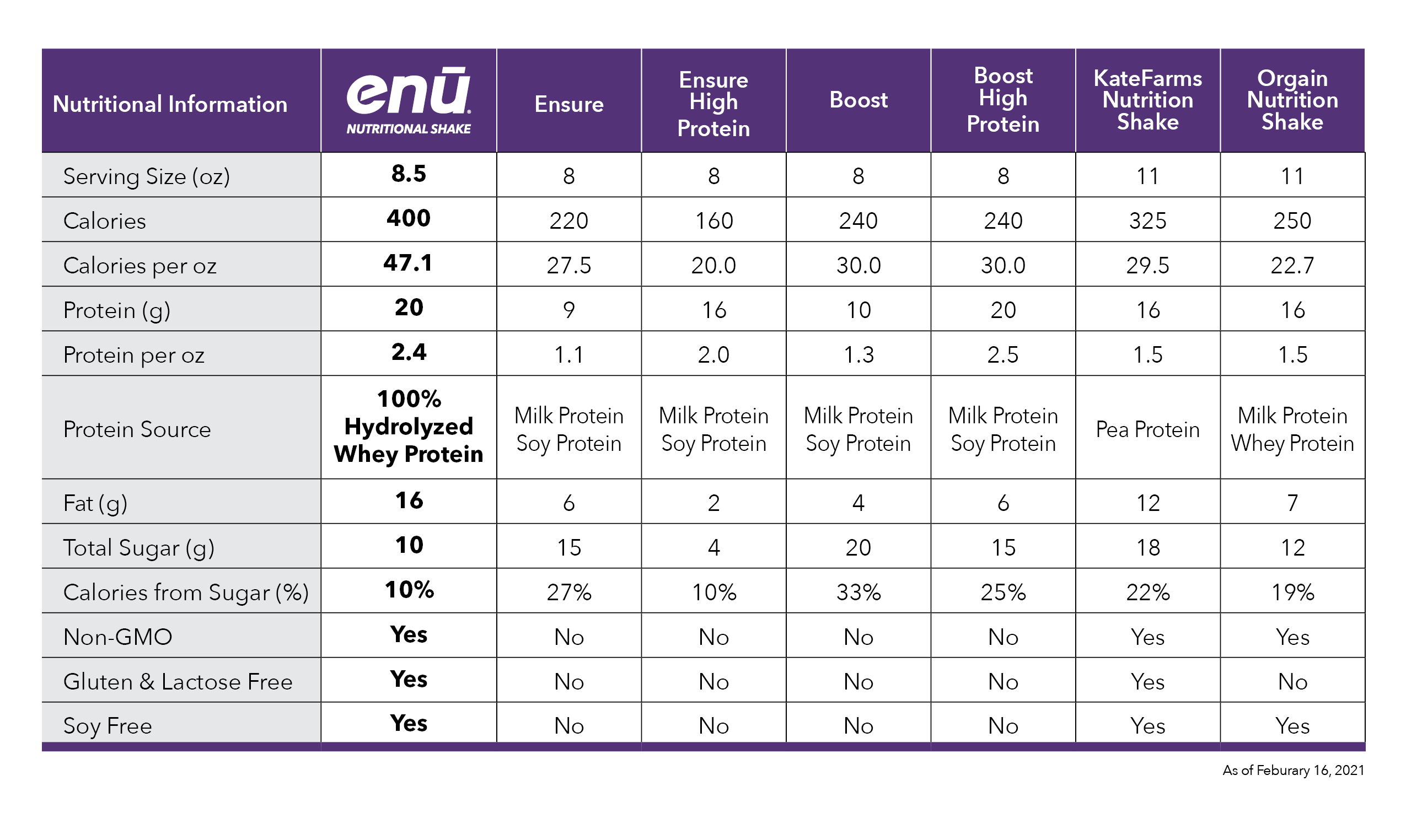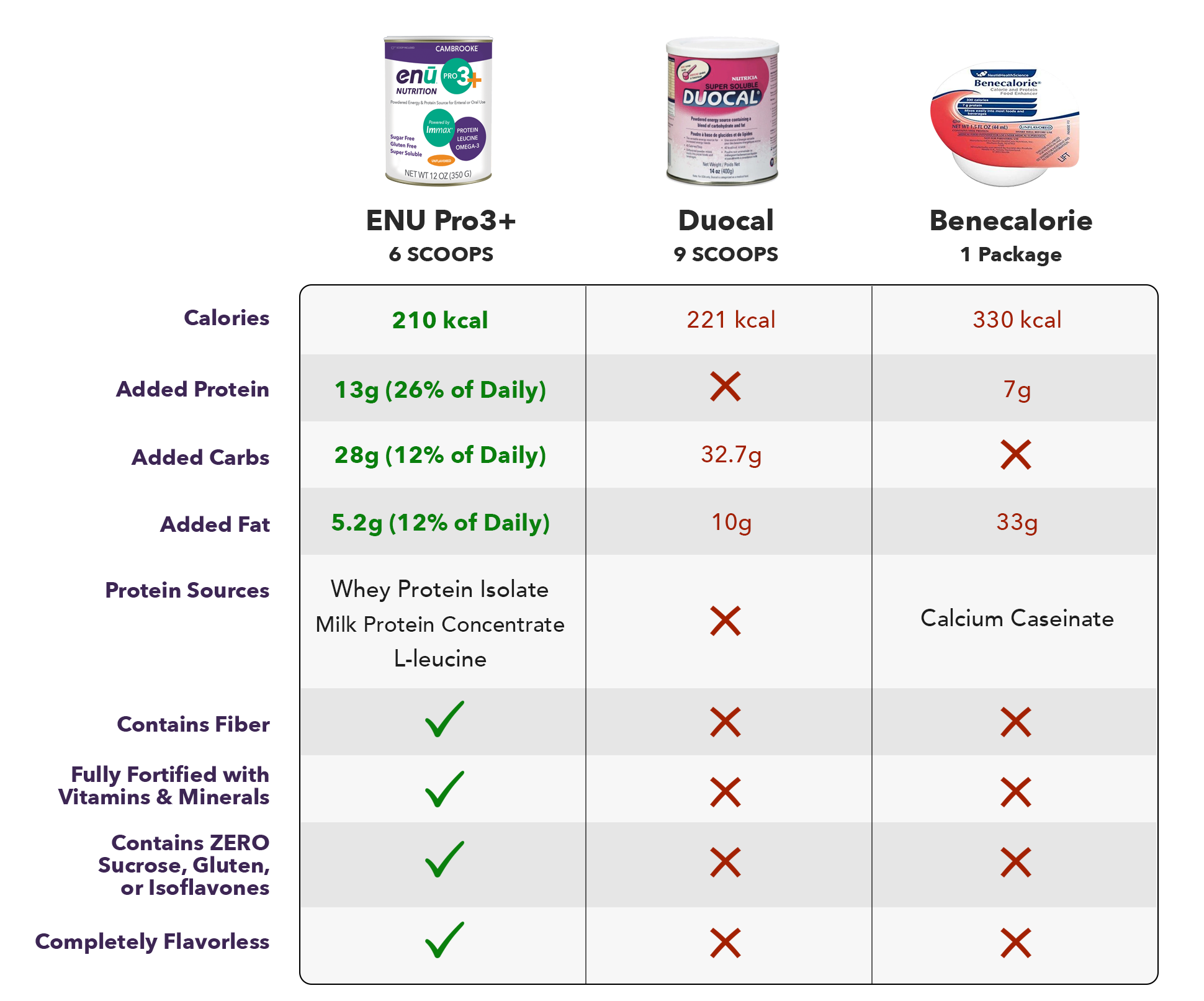
Get a FREE
ENU Intro Pack*
*Just Pay $2.00 Shipping
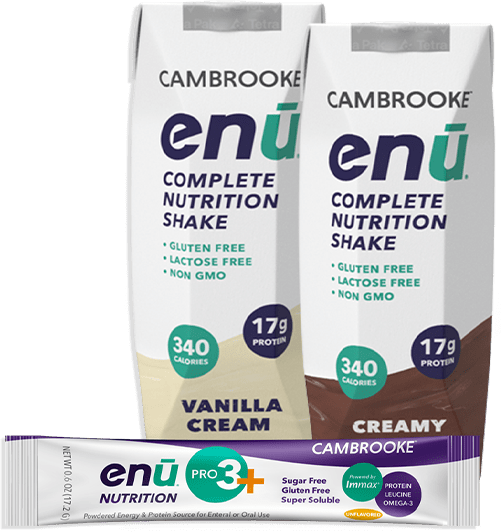
The Benefits of High-Protein Nutrition Shakes During Cancer Treatment
There’s no doubt that the challenges following a cancer diagnosis are some of the most difficult a person can endure. The physical, mental, and emotional tolls that the disease can exact on a patient and their family are tough to mitigate, so any option that can help people find relief should be explored.
One of the most fundamental issues cancer patients can experience is a lack of proper nutrition in their diet. The reasons why this occurs are many and varied, but the solution is straightforward, if not particularly easy to implement: a regular, balanced diet. However, traditional solid foods tend to present difficulties for those with specific types of cancer, which may be part of the problem in the first place.
This demographic can greatly benefit from meal nutrition shakes, an effortless alternative to prepared meals that could allow many patients to combat the weight loss and malnutrition they experience. To learn more about how our products can help you or someone you know manage weight as a cancer patient, continue reading.
What Does Dietary Protein Do for Your Body?
Although it tends to be associated with gym-going weightlifters and other fitness-oriented individuals, protein is an important component in the diet of every human being on Earth. That’s because this basic macronutrient plays a key role in a huge number of the body’s systems, from muscle growth and preservation to the healing of wounds and production of enzymes and hormones. All of these functions are important, but they are even more so for a patient whose body has been compromised by cancer and its attendant treatments, chemotherapy and radiation.
How Does Protein Help Cancer Patients?
One of the most insidious effects cancer and chemo have on the body is the slow, seemingly unstoppable loss of body weight. While this may seem like a lesser symptom compared to the pain, nausea, and hair loss usually associated with cancer, the fact remains that low body weight is associated with a number of complications including weakness, fatigue, and an increased risk of infection.
Protein’s ability to power the healing process and weight management therapy is more than enough reason to consider it invaluable to anyone with a serious illness, but it helps cancer patients in other ways as well. For instance, protein boosts the immune system and helps to ward off sickness and infection, both serious concerns for someone whose immune responses may have been crippled by chemo and radiation. It also provides the building blocks for neurotransmitters that help maintain your mood (another definite boon for those struggling with cancer) and can halt the deterioration of your muscles.
Adding Protein to Your Diet When You Have Cancer
Now that we’ve established the importance of protein as part of your diet, the next problem to tackle is how to ensure that protein is ingested on a regular basis. Unfortunately, several of the side effects of cancer and its treatments inhibit a person’s ability to eat solid foods, making it tough to stick to a balanced diet. Sores in the mouth and throat, difficulties chewing or swallowing, loss of appetite, nausea, and changes in taste all contribute to the changes in diet associated with cancer and weight loss; it’s no wonder that malnutrition is so prevalent among patients.
Many of these issues can be mitigated or circumvented entirely by incorporating meal replacement shakes into your routine. Because they come in simple flavors and require no chewing or significant appetite, these shakes can provide nutrition with minimum effort or discomfort. They also require no preparation, making them ideal for those fleeting moments when you experience a pang of hunger or brief recession of nausea.
Types of Protein to Look For in Nutrition Shakes
While most types of protein are beneficial when included as part of a balanced diet, some kinds are more advantageous than others. The most popular type of protein – not only among those with an illness but also with the wider population – is whey protein, a milk derivative that comes in a few forms. Whey protein concentrate is the most common but has the least amount of useable protein by volume, about 70 to 80 percent. When protein isolate, on the other hand, is a purer form of the protein made up of at least 90 percent protein by volume. It also has less lactose and fat, making it gentler on the system and easier to digest.
ENU Meal Replacement Shakes Offer Protein as Part of a Balanced Formula
Even though protein is crucial to maintaining a healthy diet, patients would do well to remember the other aspects of balanced nutrition. Fats, carbohydrates, vitamins, and minerals are all important in their own ways; to neglect one is to risk your health at a time when it may already be in jeopardy. ENU nutrition shakes offer 20 grams of protein along with complex carbs, healthy fats, and more than 20 vitamins and minerals, so you can be sure your body gets what it needs to keep fighting. To learn more about our products, visit us online or call us at (855) 266-6733 today.
